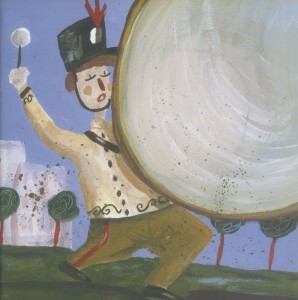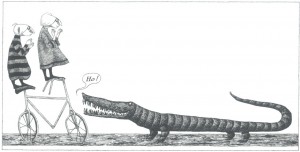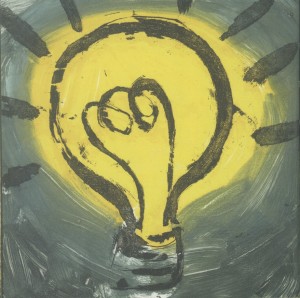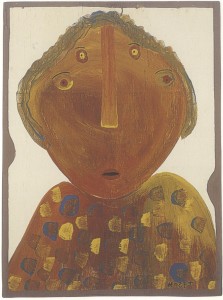Perfect
 At the Hi-Pointe Sitting Group last night….just as we were starting the meditation…someone, somewhere in the building, started practicing the drums.
At the Hi-Pointe Sitting Group last night….just as we were starting the meditation…someone, somewhere in the building, started practicing the drums.
Such is life.
It would have been even more fitting if I had brought the passage that I had planned to read, which is a teaching from Ajahn Chah, titled: Who is Bothering Whom?:
“In our practice, we think that noises, cars, voices, sights, are distractions that come and bother us when we want to be quiet. But who is bothering whom?
“Actually, we are the ones who go and bother them. The car, the sound, is just following its own nature.
“We bother things through some false idea that they are outside us and cling to the ideal of remaining quiet, undisturbed.
“Learn to see that it is not things that bother us, that we go out to bother them. See the world as a mirror. It is all a reflection of mind.
“When you know this, you can grow in every moment, and every experience reveals truths and brings understanding.”
–from A Still Forest Pool: The Insight Mediation of Achaan Chah, by Jack Kornfield and Paul Breiter
(image from A Whole World, by Couprie and Louchard)
Receiving with Generosity
The latest issue of Spirit Rock News includes an excerpt from Phillip Moffitt‘s terrific new book, Emotional Chaos to Clarity: How to Live More Skillfully, Make Better Decisions, and Find Purpose in Life.
The excerpt is about generosity, which “does not mean self-sacrifice or reckless giving everything away. Such acts,” Phillip writes, “are actually grandiosity disguised as generosity.”
I love that he talks about generosity in such, well….generous terms. He says, “In daily life, generosity means receiving each moment with a generous attitude and meeting it with patience.”
 “When interacting with friends or strangers, you give them your full attention as you listen to their words, and you interpret their actions with sympathy, even when they are clumsy.
“When interacting with friends or strangers, you give them your full attention as you listen to their words, and you interpret their actions with sympathy, even when they are clumsy.
“You cultivate magnanimous thoughts that allow you to see others in their best light and to interpret their actions as well-meaning until proven otherwise.
“Being generous in your thoughts doesn’t mean that you’re naive or that you permit a wrong action to go uncorrected. Rather, it means that you treat every one as innately worthy of your respect and care.”
What a beautiful way to live.
(image from “Offerings,” by Danielle and Olivier Follmi)
Note: Dharma Town Times got hit last night with a major spam attack, so I’ve temporarily closed the comments section. You can always send a comment directly to me here.
“Dancing” Tonight
Tonight the Monday night “Dancing” KM Group meets for our on-going discussion of “Dancing with Life,” by Phillip Moffitt. So far, we’ve read to the end of Chapter 6, “The Call to Know That You Know.” As always, we bring a sentence, phrase or paragraph from the current reading to discuss with the group.
I’ve chosen a couple of snippets from various paragraphs on page 61:
 “….beginner’s mind requires you to forsake your desires and ideas about what you will accomplish.”
“….beginner’s mind requires you to forsake your desires and ideas about what you will accomplish.”
“The Buddha cautioned: ‘The future is always other than you imagined it.'”
“Look to those far lofty peaks of enlightenment, heaven, or paradise for inspiration, but live in the now. For in this moment, you are either creating suffering for yourself and others, or you are not.”
(I hope I am not.)
(image from A Whole World, by Couprie and Louchard)
Dharma Perfume
Last night at the Hi-Pointe Sitting Group, I closed the sit by reading a few verses from The Dhammapada. I chose Gil Fronsdal‘s translation, not only because I think the language is clear and beautiful, but also because the book includes this introduction, written by Jack Kornfield:
 “…These teachings in the Dhammapada are as true now as the moment they were offered from the Buddha’s own lips. One page, one verse alone, has the power to change your life.
“…These teachings in the Dhammapada are as true now as the moment they were offered from the Buddha’s own lips. One page, one verse alone, has the power to change your life.
“Do not merely read these words but take them in slowly, savor them. Let them touch your heart’s deepest wisdom. Let your understanding grow. Seeing what is true, put these words into practice. Then, as the text says, let the fragrance of your virtue spread farther than the smell of rosebay and jasmine, farther than even the winds can blow.
“Let the practice release your heart from fear. Let the quieting of your mind and the clear seeing of the truth release you from confusion and clinging.”
Here are the verses we savored last night:
“All experience is preceded by mind,
Let by mind,
Made by mind.
Speak or act with a corrupted mind,
And suffering follows
As the wagon wheel follows the hoof of the ox.
“All experience is precede by mind,
Led by mind,
Made by mind.
Speak or act with a peaceful mind,
And happiness follows
Like a never-departing shadow.”
Face It
I thought today might be a good day to share one of my favorite passages from Mindfulness in Plain English, by Bhante Gunaratana. It’s from Chapter 7, “What To Do With Your Mind.”
 “Somewhere in this [meditation] process, you will come face to face with the sudden and shocking realization that you are completely crazy.
“Somewhere in this [meditation] process, you will come face to face with the sudden and shocking realization that you are completely crazy.
“Your mind is a shrieking, gibbering madhouse on wheels barreling pell-mell down the hill, utterly out of control and helpless.
“No problem.
“You are not crazier than you were yesterday. It has always been this way, and you just never noticed. You are also no crazier than everybody else around you.
“The only real difference is that you have confronted the situation; they have not. So they still feel relatively comfortable.
“Ignorance may be bliss, but it does not lead to liberation. So don’t let this realization unsettle you. It is a milestone actually, a sign of real progress. The very fact that you have looked at the problem straight in the eye means that you are on your way up and out of it.”
Unwanted Change
The Monday night “Dancing with Life” KM group meets again tonight and our “assignment,” as always, is to bring a passage from the book that we’d like to discuss. The one I’m bringing starts on page 47:
 “The truth of the [inevitable stress] of change goes against the ethos of modern Western culture, which promotes an unrealistic expectation that you can manage your life to be secure against unwanted change.
“The truth of the [inevitable stress] of change goes against the ethos of modern Western culture, which promotes an unrealistic expectation that you can manage your life to be secure against unwanted change.
“The false promise that you can maintain control creates an expectation that is a cause of suffering in itself, for you are bound to fail in this endeavor. Of course, you should act wisely as possible to manage change in your life–to do otherwise would be folly.
“But the difference lies in your attitude and expectations. Can you be at ease with its unpredictable, uncontrollable nature?”
I’m working on it.
(image from “Gorey Creatures“)
Ah-Ha!
I keep going back to the book we got at the last DPP retreat–Dhamma Everywhere, by U Tejaniya. The first time I picked it up, I just sort of breezed through it. It seemed kind of basic, even simplistic.
 But a few lines got stuck in my mind. For example:
But a few lines got stuck in my mind. For example:
“Why is there so much focusing? It could be that you want a certain experience or you dislike what is happening…Is it meditation when we crave for what seems good or have an aversion to what seems bad?”
And: “Don’t try to find fault with the thinking mind–you are not trying to stop thinking. Instead, you work to recognize thinking when there is thinking.”
I guess you could say a little light came on in my mind, because now I really appreciate the simplicity–and wisdom–of his words.
Especially: “We practice because we want to understand. We wait, observe, and study what is happening in the mind and body so that we can understand their natures.
“We are not intentionally trying to make the mind calm or trying to have ‘good sittings.’ We meditate to see what is happening as it is and to have the right attitude regarding what is happening, [that] it is nature and nothing personal…
“As soon as there is a thought that this experience or object is good, there is craving for it. When we see what is right as what is right, what is there as what is there, then there is escape from craving…..
“We are meditating to be free of craving and clinging.”
(Dhamma Everywhere is published in Malaysia by Auspicious Affinity, for free distribution. You can download a pdf here.)
(image from “A Whole World,” by Louchard and Couprie)
How Do You Know?
 I’ve been listening to U Tejaniya answer questions from students on retreat at IMS (available on Dharma Seed here) and reading his most recent book, “Dhamma Everywhere” (available as a free pdf here), and I’m very intrigued by his teachings…which are light, relaxed and very naturalistic.
I’ve been listening to U Tejaniya answer questions from students on retreat at IMS (available on Dharma Seed here) and reading his most recent book, “Dhamma Everywhere” (available as a free pdf here), and I’m very intrigued by his teachings…which are light, relaxed and very naturalistic.
He says, “…Do you know that you have a mind? How do you know that you have a mind? You can see or observe the mind through its workings/functions, e.g. knowing, thinking, experiencing, feeling, wanting, focusing, etc.
“Now, put your hands together and look at your clasped hands. You know that your hands are touching, right? How do you know this touching sensation? What is the mind doing that you are able to know this? You know because the mind is aware and paying attention to it right now.
“Do you know that the mind is paying attention and aware? Would you know that your hands were touching if your mind was thinking about something else?
“No.
“So you can see that it is not merely because your hands are touching that you know but because the mind is paying attention and awareness is a quality that is part of this attention that you know they are touching.
“Can you shift your attention from your palms to your feet? You can, right? This shift in attention is actually the mind at work. It is the mind paying attention.
“If you know that you are paying attention, then you are aware of the mind.”
Maybe it’s just where I am in my practice right now, but I find not only what he says — but how he says it — to be very, very helpful.
That Changes Things
 The Monday night Dancing with Life KM group meets again tonight. The group is reading the book, Dancing with Life, by Phillip Moffitt and the “assignment” for tonight is to read to the end of Chapter 5 and to come prepared with at least one sentence, phrase or paragraph to discuss with the group.
The Monday night Dancing with Life KM group meets again tonight. The group is reading the book, Dancing with Life, by Phillip Moffitt and the “assignment” for tonight is to read to the end of Chapter 5 and to come prepared with at least one sentence, phrase or paragraph to discuss with the group.
I chose a few from an early part of the book, where Phillip gives very clear instructions for the mindfulness meditation practice, AND very clear descriptions of the benefits.
From page 13: “Starting over is a key step in meditation.” This is big for me because it’s so reassuring. It’s not a failure to have to keep starting over. It’s a key part of the process!
From page 20: For the first few years of practice you are literally reprogramming your nervous system to free it from habitual reactivity. This alone will bring much ease and flexibility to your mind.” I chose this sentence because he’s talking about a benefit of meditation that’s practical, tangle, not “woo-woo.” It’s a real, down-to-earth benefit that I have experienced.
And, he continues, “The most life-changing benefits of mindfulness meditation are the insights, which arise spontaneously the way a ripened apple falls from the tree of its own accord. Insight is what changes your life. Through insight you realize what brings well-being to yourself and others as well as what brings stress, discomfort, and dissatisfaction into your life.” I chose this passage because of the phrase: Insight is what changes your life.
I chose it because Insight has changed mine.
(image by Mose Tolliver, from “Outsider Art” postcards)
Check It Out!
 DharmaTown Library is now new and improved!
DharmaTown Library is now new and improved!
Categories have been added, so you’ll be able to find groups of books, based on specific topics or areas of interest. The categories will surely change and grow, but right now they are:
* Beginner’s Mind
* Classics
* Deep Practice
* Dharma of Money
* Inspiration
* Science
* Travel
The Library Home Page will now focus on just one Featured Selection, which will change to reflect new books being released, popular topics, visiting teachers, and/or recent posting here on DharmaTown Times. Check it out!
